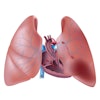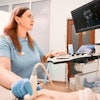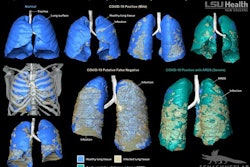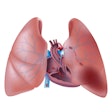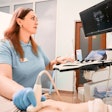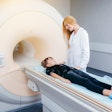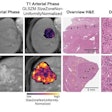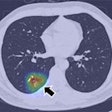Dear AuntMinnie Member,
One of the most uplifting days on the calendar of academic medicine is Match Day, when medical students find out which residency program they've matched with. This year's Match Day took place Friday, March 19, and it was heartening to see the joy and enthusiasm as medical students learned of the next step in their medical careers while radiology residency programs welcomed their next class of trainees.
The COVID-19 pandemic has definitely changed how Match Day is celebrated -- gone are the large gatherings where medical students are called up on stage to the adulation of their fellow students and instructors. Hopefully, 2021 will be the last year of the "virtual match" and things will return to normal next year.
Congratulations to everyone who matched in radiology this year -- you've made the right choice!
Breast screening guidelines
Controversy erupted once again over breast screening guidelines this past week, and our coverage of the kerfuffle was our top story for the week.
A research group analyzed recommendations for mammography screening found on the websites of breast imaging centers and claimed that most advised that women start screening earlier -- and get screened more often -- than recommended by many national societies.
Defenders of breast screening have been quick to fire back, however. They noted that a number of medical societies recommend starting screening at age 40 and that many breast imaging specialists do not support guidelines that advise women to wait until 50 before starting routine screening.
In other women's health news, are enough women being referred for uterine artery embolization (UAE) as a treatment for postpartum bleeding? A study to be presented at the Society of Interventional Radiology meeting, starting tomorrow, suggests they aren't.
Researchers found that hysterectomy was used 60% more often than UAE to manage postpartum bleeding -- despite the fact that the interventional procedure can reduce hospital stays and costs, while also preserving fertility in women.
Also be sure to check out a story on how MRI radiomics can predict the risk of breast cancer recurrence.
Get these stories and more in our Women's Imaging Community.
The promise of PET/MRI
PET/MRI is medical imaging's most powerful modality. But some 10 years after the first systems became available for clinical use, there are only about 110 scanners installed worldwide. Has PET/MRI fallen short of its promise?
That was one of the questions asked in a presentation at the recent European Congress of Radiology, and we're pleased to highlight the discussion in our Molecular Imaging Community. Several speakers believe that there are killer apps -- such as prostate cancer imaging -- for which PET/MRI is uniquely suited.
Indeed, PET/MRI was a key element in a research study that found that loss of cognitive function in older people due to head injuries that knocked them unconscious earlier in life is unrelated to pathology associated with Alzheimer's disease.
Learn more about PET/MRI and other technologies in our Molecular Imaging Community.

